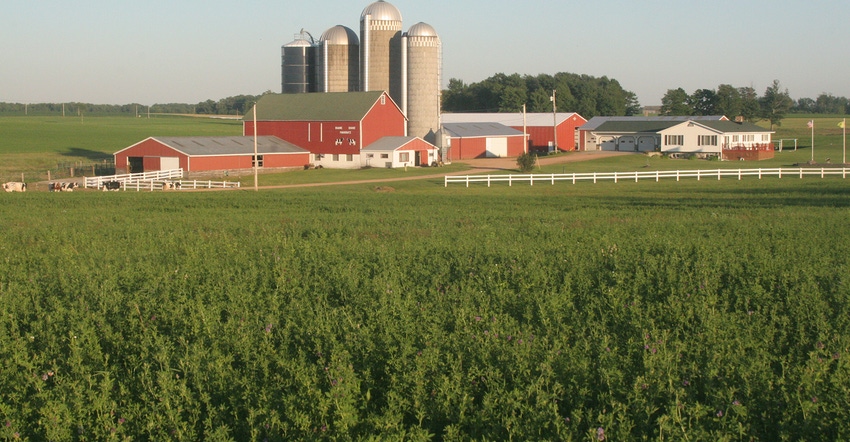July 19, 2018

By George Twohig
Our farm clients uniformly take pride in the history, success and future of their family farms, and consider those farms legacies worth continuing.
They often speak of the following: the stewardship they feel about the farm; their appreciation of the child or children who willingly accepted the work, burdens, responsibilities and risks of continuing the farm as an operating business; their appreciation of the love and support they receive from each of their children; their pride that the children who left the farm are self-sufficient in their lives and separate careers; and their concern that the farm transfer and differing expectations may adversely affect family harmony.
Commit to stewardship
Your family farm connects past, present and future generations. In many ways, it is your family’s shared heritage. A heritage can only continue to evolve if the present generation and future generations, like past generations, view themselves as stewards of the farm, rather than just owners of a business. Webster’s dictionary defines stewardship as “the careful and responsible management of something entrusted to one’s care.” You were entrusted to keep the farm competitive and sustainable until you turn it over, in a timely and responsible way, to the next generation.
While the farm is your family’s heritage, your most enduring legacy is the quality farm values passed to the next generation. Quality values count the most, no matter the farm’s size or the family’s wealth. As the title of Jerry Apps’ new book states, “Every farm tells a story: A tale of family farm values.” The values that guided your family’s and farm’s success, as well as the farm life, experiences and work, deeply benefited each child, whether he or she stayed on the farm or elected an alternate life and career.
Commitment to shared values is essential and powerful. Shared values are key in any effective partnership, both when parents and successors are partnering and later when successors are partners.
Shared values and beliefs are the bedrock of a culture of trust and synergy that drives the business, and behaviors and interactions that reflect those values. Shared values provide a standard for decision-making and compatible relationships. Shared values support and promote the following:
• shared commitment to stewarding the farm legacy
• respect, honesty, commitment, and group achievement and recognition
• a common purpose and vision of the farm’s future
• development of explicit, compatible personal and business expectations
• openness to accountability and accepting input from the others
• greater meaning to work as a service, rather than just a job
• better performance
• honest, respectful and proactive communication
Shared values are the foundation of enduring personal and partnership relationships, and they drive superior results.
Determine shared values
It is important to determine what beliefs and behaviors you value as a family and as a farm business, and agree that everyone must live true to them. These beliefs and behaviors have been, and will always be, essential to your success as a family and as a family business.
The potential of conflict is inherent in any business relationship. Each parent and successor is an independent person with his or her own perspective or, too often, fixed position on most major decisions, allocation of work and responsibilities, compensation, and other management issues. Each person makes his or her decisions and views others’ decisions, consciously or not, through his or her lens of values, beliefs and past experiences. Each person’s perspective is often also influenced, to some degree, by his or her preserved need to promote or protect his or her self-interest.
Shared values assist in finding the “best answer” by requiring that each person’s participation must first be in-line with those values and the shared vision of the farm’s future. For example, you may agree that each person needs the attitude that “I’m here to make sure that everyone is successful,” rather than “I’m here to tell these people what to do.” Sibling partners may agree that each sibling needs the attitude, based on sincere belief, that “I’m here to make sure both families are successful and the door is open to qualified and committed successors from both families,” rather than to favor one sibling’s family.
I hope this column will motivate you and your successors to discuss, identify and prepare a statement of the values, beliefs and behaviors critical in your family and in your farm business. I hope you will also be motivated to develop a history of your farm to record the stories of challenges, successes and failures that give context and meaning to your family farm legacy. Families that have made the effort have found real and substantial value from the process and the results.
Twohig is a partner in the Chilton, Wis., ag law firm Twohig, Reitbrock, Schneider and Halbach S.C. Call him at 920-849-4999.
You May Also Like




